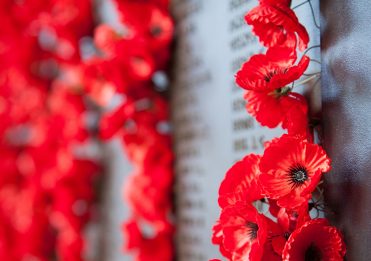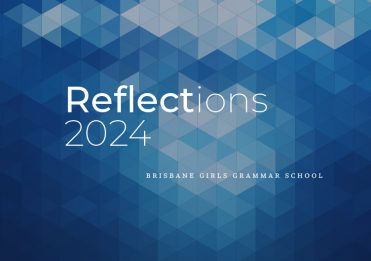When I last wrote on the topic of ‘building a culture of thinking’, I played with the motif of artisanal baking—the nourishment of it, the goodness of it, the simple joy of it.
Today as I reflect, the global health crisis of coronavirus is rapidly unfolding. The news media is a flurry and we are rapidly learning about the exponential growth of a curve that communities across the globe are so desperate to flatten. That is the reality at present and nourishment, goodness, and simple joys are much needed.
Many schools, by necessity, have taken stock and considered what educational continuity might look like for home or remote learning, based on the fundamental premise that education is liberating and learning is inherently valuable.
In Fahrenheit 451, the set text for our Year 10 Literature students this term, Ray Bradbury explores the power of knowledge—and of learning and ‘knowing’—against the backdrop of a hedonistic, technocratic society, consumed with triviality. For many in this fictional world, it doesn’t end well. But that is not the reason I share this—I share it for the more uplifting messages Bradbury offers readers; that books and learning are a gift; that curiosity and the act of slow looking, of spending time in meaningful ways are to be celebrated.
In the novel, Bradbury alludes to Alexander Pope’s poem, An Essay on Criticism (1711):
A little learning is a dangerous thing:
Drink deep, or taste not the Pierian spring:
There shallow draughts intoxicate the brain,
and drinking largely sobers us again.
In these words, Pope—and Bradbury—invite us to see that taking time to ‘drink deep’ from the Pierian spring [of Macedonia]—the source of knowledge of art and science that quenched the thirst of the muses in Greek mythology—is a replenishing, satiating act that vitalises the mind in logic and rationality. The metaphor is grounded in learning; in taking the time to learn deeply.
We know that such learning cannot occur only at school or in traditional school hours. This would be a highly industrialised and limiting view of learning. Rather, we must turn our attention to how we might use time differently, and conceptualise the time spent by students on their curriculum endeavours at home not as home work but as home learning—now more than ever.
This is a subtle shift but a powerful and important one. It is one that offers sustenance in the face of the new system of learning and assessment for senior secondary students in Queensland, and one that indeed we must now embrace in the face of the societal changes and challenges that COVID-19 has thrust upon the globe.
This type of deep learning is something we have thought carefully about in recent months. It just happens to have taken on new implications with our students learning from afar. We have carefully sought to build a culture of thinking and have painstakingly attended to the architecture of our students’ learning progression—what skills and attributes they might need to acquire and when, and the dispositions and academic discipline that need to be nurtured as they progress through these developmental phases. These values hold fast.
Indeed, there is an important set of complementary skills that lie at the core of this progression, including the ability to plan home learning with purpose, and the ability to think about learning as a continuum—rather than short cycles of learning and, dare I say it, forgetting. Per the didactic value of Fahrenheit 451, it is fair to say Bradbury would agree. We can’t afford to do this—to learn and forget. Instead, we must look at how we ‘space out’ our independent home learning; how we cycle back to learned concepts, and what we do to not only secure skills and conceptual understanding in long-term memory but also what we do to retrieve this consistently, and with accuracy.
The girls have access to a carefully curated ‘study skills’ tile on Minerva, which is a repository for evidence-based strategies to support deep learning and the activation of long-term memory. In addition, this tile contains a range of planning tools that have been developed to help them to ‘space out’ their home learning and to manage their time into short, high-value and high-impact home learning sessions. These may be especially helpful in this current phase of sustained home learning.
Fahrenheit 451 does offer some positives for those who are open and willing to learn, however challenging the learning may be. Near the end of the novel, the protagonist Guy Montag dreams of simpler things … not quite artisanal bread but of natural, wholesome foods, nonetheless:
‘A cool glass of fresh milk, and a few apples and pears laid at the foot of the steps. This was all he wanted now. Some sign that the immense world would accept him and give him the long time needed to think all the things that must be thought. A glass of milk, an apple, a pear.’
The reference to such natural items is refreshing, and is used by Bradbury to suggest that stepping out of the noise—away from the technocracy—and taking time to nourish ourselves by slowing down and connecting meaningfully with others, and taking time to embrace deep learning and simple, wholesome things, will sustain us. In a world where the language and practice of social distancing, social isolation and quarantine have become part of our everyday lives and world leaders’ diction of war permeates the social and mass media, what could be truer, or more vital?
We face many challenges in the weeks and months ahead and we very much look forward to welcoming the girls and their families back to the School when this present crisis abates. For now, please accept my sincere and very best wishes for you and your families’ health and wellbeing, and for the girls’ learning, wherever that may happen.
Ms Sarah Frew
Associate Dean




